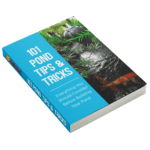Deep Breath Before The Plunge
If you look for do it yourself stores and businesses, you will discover that ponds are very often referred to as “water ponds”. If you wish to have someone to comprehend your question, you may have to swallow your grammatical pride and inquire about “water ponds”.
Some professional people break “water ponds” down into specific categories, for instance “garden water ponds”, “fresh water ponds”, “standing water ponds”, but still there are those two words glaring back at you in the face “water ponds”. You may as well call Mark Spitz a “water swimmer”.
Okay, I’ve Got a Theory
Granted, there are more subjects in this world to become worked up over, yet if you are in the communication field and the need to communicate in an effective way it is imprinted in every cell in your body. The phrase “water ponds” makes the entire cells shake and go. “Ack!”
Where and when did you begin to call “ponds” “water ponds”? Could it be that the majority of kids nowadays grow up not realizing what a pond actually is? Possibly. The Department of the interior has estimated in 1997 that over 17,000 acres of wetland were lost each year. And that’s only in the United States.
The reality is the loss of wetland happens everywhere, except possibly Antarctica, which is having it’s own issues of glacial loss, but that’s a different article. Can it be that the word “ponds” is steadily becoming just as rare as what is represents?
Ponds used to be thought to be an everyday word. This takes into account that it was before the skincare cream of the same name appeared on the market. Everybody knew of a nearby pond. Heck, every kid and his brother knew of what a “pond” was. However, now the word “pond” appears to be departing from the collective unconscious. The fact that if you go and Google “water ponds” you will come up with over 17,100 web pages showing some linguistic tide has turned.
English is a living language that thrives and lives completely on living things. As living things, we all grow, change and adapt. What was self-explanatory the day before now requires reclassification today, and vice-versa.
So, in conclusion, the prominence of the term “water ponds” in daily English should be a warning that we are about to loose a significant element in the real environment as well as the subliminal environment – the pond.


